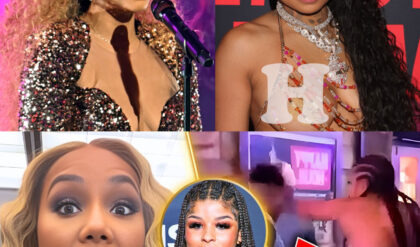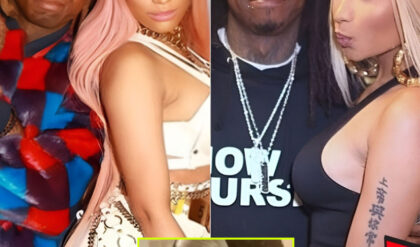The Jennifer Lopez Dilemma: Diva or Media Misrepresentation?
Jennifer Lopez, a multifaceted star known for her roles in music, film, and dance, often finds herself at the center of controversy regarding her demeanor and behavior. Despite her immense talent and success, Lopez has been characterized by some as a diva, a label she believes is undeserved and attributes to media misrepresentation.
The term “diva” in her case is often linked to allegations of high-maintenance demands and a certain level of entitlement. Stories circulate about her penchant for luxury items like speedboats and lavish floral arrangements, alongside accusations of dismissive behavior towards service industry workers. These portrayals contribute to a public perception of Lopez as demanding and difficult.
In her personal life, similar stories abound, such as rumors about a stringent set of expectations she supposedly imposed on her former partner, Alex Rodriguez. These narratives paint a picture of a celebrity who maintains strict control over her relationships, further fueling her diva reputation.

Lopez’s interactions with fellow celebrities have also come under scrutiny. She has been accused of making disparaging remarks about other actresses, including Gwyneth Paltrow, Winona Ryder, and Cameron Diaz. In one notable instance, Lopez questioned Paltrow’s accomplishments in Hollywood, implying that Paltrow’s fame was more about her personal associations than her professional achievements. Her comments about not being a fan of Ryder’s work also exemplify the kind of blunt critique that has led to her diva moniker.
These incidents illustrate the complex relationship between celebrity culture and media portrayal. While Lopez asserts that these characterizations are unfair and a product of sensational media coverage, the persistence of these stories influences public perception. This dynamic raises questions about the balance between a celebrity’s true personality and the persona constructed by the media and public discourse.
As with many public figures, the reality likely lies somewhere between the persona of a demanding diva and the professional, talented artist Lopez is known to be. Jennifer Lopez’s public persona has been colored by a series of incidents that paint a picture of someone who not only expects but demands a level of treatment and perfection that some may see as excessive or even diva-like.

Her comments on other A-list actresses like Gwyneth Paltrow, Winona Ryder, and Cameron Diaz offer a glimpse into her critical, perhaps competitive nature within the highly competitive Hollywood environment. Her remarks, while potentially reflecting honesty or straightforwardness, have been interpreted by many as evidence of a superiority complex or a dismissive attitude towards her peers.
The 2011 Fiat commercial incident, where Lopez was reported to have used a stand-in for a shoot meant to highlight her Bronx roots while she remained in Los Angeles, significantly dented her authenticity. This decision not only contradicted the narrative of the ad but also drew criticism for its lack of genuineness, putting her sincerity and connection to her roots in question.
Furthermore, her meticulous attention to appearance and comfort has often been showcased through what some might see as outlandish demands. For instance, the hiring of a stylist specifically to maintain her appearance during the filming of her music video “Jenny from the Block” or her elaborate requests during hotel stays, such as at the Dorchester Hotel in London, where her demands for luxury and specific items were noted.
These behaviors extend to interactions with service staff, where she has reportedly exhibited a refusal to engage directly, instead communicating through assistants. Such actions contribute to the narrative of her being out of touch and overly indulgent. While some of these stories may be exaggerated or misrepresented, they collectively contribute to a public image of Jennifer Lopez that clashes with the relatable, down-to-earth persona celebrities often strive to present.

Her actions and reported demands create a dichotomy between her on-screen charm and the off-screen expectations that seem to place her in a different, less approachable light. This complex image poses challenges not only for her public relations team but also for her fans’ perception of her as a person and an artist.
The multitude of allegations against Jennifer Lopez paints a complex and often negative picture of her interactions and behavior behind the scenes. From her reported demands on set to the way she purportedly handles personal relationships and staff interactions, these stories contribute to a broader narrative of a celebrity who may be challenging to work with and demanding beyond typical industry norms.
The incident involving the maid at a German hotel, if true, highlights a troubling disregard for the individuals who operate in the service sector, further cementing her reputation as someone who might prioritize her comfort and image over basic courtesy. Meanwhile, Rosie Perez’s account from their time on “In Living Color” suggests that Lopez’s demanding nature isn’t just reserved for logistical arrangements but extends into personal relationships and work environments, potentially causing discord and professional tension.
Her requirements at events like the 2010 World Music Awards epitomized the stereotype of a diva, expecting an extravagant level of accommodation ranging from custom-fitted speedboats to exclusive hotel amenities. These demands, while perhaps ensuring her comfort, seem extravagant and have left many observers astonished at the lengths to which she or her team will go to secure her satisfaction.

Furthermore, her relationship with Alex Rodriguez, characterized by stringent rules about time and public appearances, if accurate, suggests a controlling aspect to her personal interactions that mirrors the control she allegedly exerts in professional settings. The consistency of these reports over time and across different contexts, from professional sets to personal relationships, raises questions about the extent to which these behaviors are true reflections of her character or perhaps embellishments of her persona.
While it’s possible that some of these accounts may be exaggerated or misrepresented, the recurring nature of such stories does influence public perception significantly. In an era where social media amplifies every celebrity misstep, Lopez’s actions, whether misinterpreted or factual, become fodder for public scrutiny, affecting her reputation not just among fans but also within the industry.
As these narratives unfold and more people share their experiences, the image of Jennifer Lopez continues to evolve, reflecting the complexities and contradictions of life under the celebrity spotlight. The slew of stories surfacing about Jennifer Lopez’s behavior, particularly towards service staff and in various public interactions, paints a rather negative portrait of the superstar.
These accounts, shared widely across social media platforms like Twitter and TikTok, highlight experiences that suggest a pattern of discourtesy and high-handedness. One particularly striking story involves an incident at a casino where Jennifer Lopez allegedly took a $100 tip left by Ben Affleck and replaced it with a significantly lesser amount. Another similar tale recounts how she supposedly confiscated a large casino chip gift from a waitress, only to be publicly rebuked by Marc Anthony, who then compensated the waitress generously.

Such stories, if true, indicate a troubling disregard for the dignity and hard work of service employees. The narrative extends beyond just those in service roles. Reports from individuals in everyday settings, like a high school where she was filming, suggest she maintains this demeanor universally, allegedly refusing even to engage with students. These allegations, contrasted with other celebrities who are reported to be polite and appreciative, like Britney Spears in the same Las Vegas setting, intensify the scrutiny on Jennifer Lopez’s public image.
Such comparisons deepen public perceptions of her as detached and perhaps lacking empathy, especially when juxtaposed against her roots in a working-class neighborhood, which she often references in her public persona. These stories contribute to a broader discussion about celebrity behavior and the expectations of humility and gratitude we have for public figures, especially those who have risen from humble beginnings.
While it’s essential to approach these accounts with a degree of skepticism, acknowledging that stories can be exaggerated or misreported, the consistency and volume of complaints are difficult to ignore. Now, turning the question to you, the readers: Do you think other celebrities exhibit similar behaviors, or is Jennifer Lopez an outlier in this regard? Share your thoughts and experiences below, and don’t forget to check out related content for more insights into celebrity culture and behavior.
Watch full video below:





